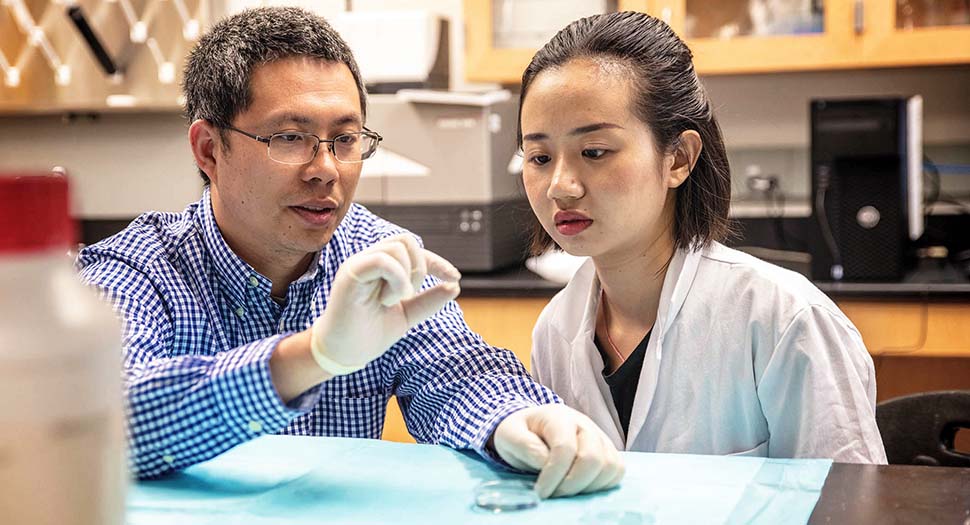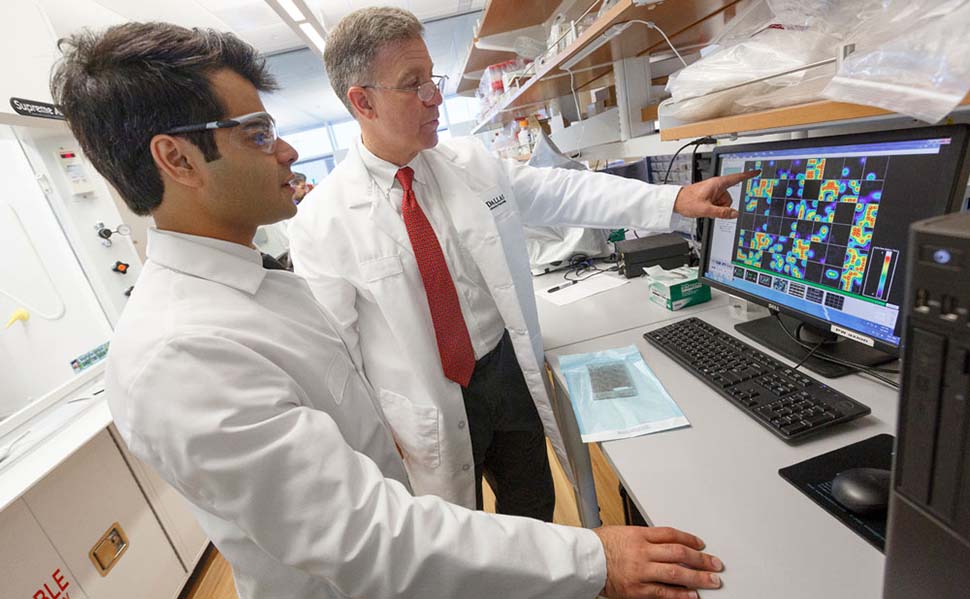![]() Every week, we do a little research of our own. We’re looking for scientists, professors, engineers, entrepreneurs—anybody, really—engaging in research and development across North Texas.
Every week, we do a little research of our own. We’re looking for scientists, professors, engineers, entrepreneurs—anybody, really—engaging in research and development across North Texas.
There’s plenty of good work being done. If you want to put R&D under your microscope, sign up for our e-newsletter.
Study: High-intensity exercise doesn’t endanger men’s heart health
Here’s some good news for middle-aged men who enjoy extreme exercise—a new study says it’s not putting your heart health at risk.
Researchers at UT Southwestern Medical Center in Dallas, led by Dr. Benjamin Levine, looked at men who do high-volume, high-intensity exercise. That’s at least five or six hours per week at a pace of 10 minutes per mile, according to the study’s definition.
“The question has never been whether exercise is good for you, but whether extreme exercise is bad for you.”
Benjamin Levine
Levine studied data from the Cooper Center Longitudinal Study, in which a total of 21,758 generally healthy men ages 40 to 80 and without cardiovascular disease were followed for mortality between 1998 and 2013, UT Southwestern said in a release. Most of the men were in middle age and most were runners. They reported their physical activity levels and underwent coronary calcium scanning.
“The question has never been whether exercise is good for you, but whether extreme exercise is bad for you,” Levine said in a statement. “For the past decade or so, there’s been increasing concern that high-volume, high-intensity exercise could injure you heart.”
Well, worry not. “We found that high volumes of exercise are safe, even when coronary calcium levels are high,” Levine said.
Coronary calcium is a footprint of atherosclerosis, a disease in which plaque builds up in the arteries and can lead to strokes or heart attacks. UTSW said high-intensity athletes had low levels of coronary calcium, although their risk of having higher levels were 11 percent higher than men who exercised less.

Yi Hong, a UTA associate professor in bioengineering, received an NIH grant to design a method of treating a vaginal prolapse that could improve the quality of life of thousands of women. [Photo: Courtesy UT Arlington]
UTA researchers developing method to repair vaginal prolapses
An interdisciplinary team at the University of Texas at Arlington will use a five-year $1.6 million grant from the National Institutes of Health to develop a method that will enable physicians to repair vaginal prolapses that are in their early stages.
Such a method could possibly help women avoid surgery and other complications, a release states.
The team, led by Yi Hong, an associate professor in UTA’s bioengineering department, is developing a strong, bioadhesive to reattach the floor muscles early—before they detach completely—preventing additional tearing while the body works to repair the affected muscles.

Dr. Joseph Pancrazio (right), pictured with doctoral student Rahul Atmaramani (left), is leading UT Dallas’ effort to increase its externally funded research portfolio, especially through grants and contracts with federal agencies. [Photo: Courtesy UT Dallas]
UTD seeks ways to boost faculty opportunities for research funding
Funding is the lifeblood for researchers at academic institutions. Officials at the University of Texas at Dallas Office of Research have initiated several new approaches to help faculty members increase their chances of obtaining research funds.
“External funding supports innovation and scientific discoveries among our faculty and benefits our students, who learn from those faculty members and conduct research themselves,” said Joseph Pancrazio, vice president for research, in a statement. “It also enables the translation of discoveries to the private sector to drive economic development.”
The initiatives are:
- Road to D.C. — A program that allows roughly 30 faculty members to travel to Washington, D.C., to meet with program managers at federal funding agencies.
- Seed grant initiatives — The Office of Research is piloting initiatives this spring to help researchers buy equipment, gather preliminary data, initiate collaborations, and engage in other activities that would help them successfully compete for external funding.
- Outreach Component — Many federal agencies require a public outreach to be included in a grant proposal. So, the Science and Engineering Education Center at UT Dallas collaborates with over 50 local agencies to create kits and exhibits that introduce STEM subjects to pre-K-12 students.
READ NEXT
R&D: No Pleasure in Life—SMU Scientists Test Treatment; UTSW Studies Hepatitis C & Liver Cancer
![]()
Get on the list.
Dallas Innovates, every day.
Sign up to keep your eye on what’s new and next in Dallas-Fort Worth, every day.


































































